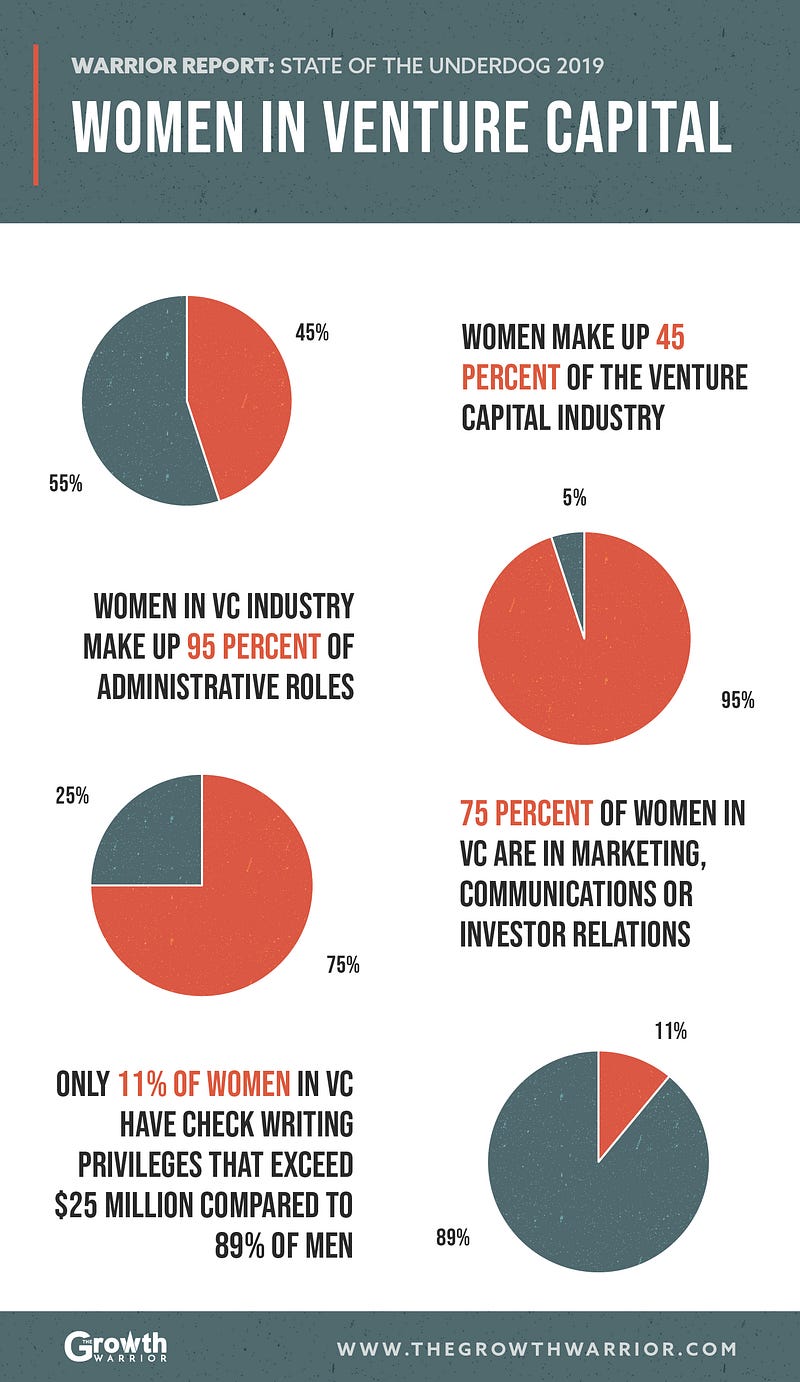In 1971, a young mother of three boarded a small boat to make a journey from her home country, Haiti.
She hoped to find her husband, who had fled Haiti’s dictatorship nine years earlier.
She reunited with him in a flourishing community of Haitian immigrants in The Bahamas, where he had found safety and work.
Within a year of their reunion, she gave birth to her fourth child, a son.
The family later moved to the United States, and 28 years later, that ti-garcon, “young boy,” became a successful serial entrepreneur.
I am that boy.
I am writing to discuss a topic seldom discussed among professionals.
Women.
We indeed talk about women all the time, but not about how amazing they are as entrepreneurs or professionals.
I believe in many ways, they represent the most untapped potential in our world.
In the world I live in, the tech world, the number of women (and people of color) in leading roles is unfortunately low.
You don’t have to go far to get the stats and reasons.
Just look at the “State of the Underdog Report,” recently published by my friend Promise Phelon at The Growth Warrior.
After identifying the scope of what it means to be an underdog entrepreneur — considering things like gender, age, race, sexual orientation, and education — and defining the challenges entrepreneurs face, especially in funding, her research found that the diversity gap is actually widening.
Promise says, “Our research revealed that the profile of who is getting funding is becoming tighter, more replicated, and reinforced. The real and present risk to this tightening is that the funnel for underdog entrepreneurs will become narrower because the barriers to entry as defined by the data will deter otherwise impactful leaders from launching businesses.”

Or, explore the last two years of First Round’s ground-breaking reports on gender dynamics in startups. Their surveys found that most people think it will take 11–20 years for the tech industry to see gender equality.
20 years! Why?
Barriers to entry remain one reason, of course. In 2018, 36.6% said there aren’t enough women and minorities going into tech. 23% say unconscious bias in hiring, promotion, or compensation is the primary cause of the underrepresentation of women and ethnic minorities in the tech industry.
Arguably little progress was seen in the effort to gender equity in tech from 2017 to 2018.
Actually, in 2017, 2 out of 3 women founders say their gender hurt their ability to fundraise. But 42% of people reported they’re not concerned with Diversity in the workplace in comparison to 31% who reported they were. Further, the report found that 51.3% of people said their teams are mostly male in contrast to 9.1% people who reported their teams are mostly female.
One long-standing member of NY Angels recently completed his doctorate research on the gender issue. He studied the personality traits of women who have successfully raised seed financing. His research used DISC & AQ. The traits were defined as:
- Dominance: Drive, Determination, Self-reliant, Independent
- Influence: Self-confident, Expressive, Sociable, Enthusiastic
- Steadiness: Patient, Persistent, Stable, Thoughtful
- Compliance: Rules-oriented, Organized, Precise, Cautious
- Resilience (measured by Adversity Quotient): Tenacity, Endurance, Optimistic, Influence
“Dominance is strongly evident among female entrepreneurs who have obtained seed funding,” says Nathan Sambul, author of the dissertation, which examines the case study. “Steadiness and Resilience are supportive traits in the process.”
He also found discrimination and harassment to be prevalent among his participant’s experiences with fundraising.
“I had a male co-founder back then, and it would come up, ‘Oh, is your co-founder, your husband?’ You would never get that if a man said about another man, ‘He’s my co-founder.’ No one would say, ‘Oh, are you a gay couple?’ Somehow when a woman starts a business, it invites this little seed of doubt that she couldn’t do it without her husband’s help,” explained one of his participants in his study.
These are strong women.

As I said earlier, I am the product of a strong woman.
My mother is an immigrant, through sheer grit, worked for over 35 years in the most menial of jobs to help provide my four siblings and me a better opportunity. All five of us (two of them women) completed university and have professions we are passionate about.
She endured a society that was not nearly as embracing of working women as it is today.
And we haven’t improved very much.
Just look at the past several years of the #metoo movement.
I am married to an amazing woman — who makes me a better man every day. And I have two daughters — one of them just arrived the week this article was published — who will grow up in a world where gender equality is still not a reality. I really give this lots of thought, daily. What principles do I have to teach her to help her become a future leader in this society?
When I look at my professional career, I have had the pleasure of meeting some pretty impressive women. In fact, these relationships have become some of the most rewarding for me.
(I won’t make a list, you all know who you are.)
When I consider the challenge of moving closer to true gender equality and the presence of women (and people of color) in the tech workplace, I believe it starts with everyone, especially my male counterparts, to give it “CPU” cycles. We must really discuss it.
Here is a shortlist of things we can do:
(1) Start with the young ones — Think about how you can help young women get into the tech field and become a mentor.
(2) Look at your team — What is your goal for the makeup of your organization as it relates to gender balance? Do you have one?
(3) Track the data — We have all become data hounds. We should collect the data wherever we are because, as with any other challenge, analyzing it will help us to improve the situation.
(4) Put your money where your mouth is — There is no reason a woman should get paid differently than a man in the same role. Period.
(5) Use your CPU — As a leader, think about how you can help balance the scale here and take action.
(6) Lend your support — Support those organizations that are working on the problem first hand.
The world is full of strong women who can make indelible marks in the universe. We, men, should do everything we can to remove obstacles to their success, including ourselves.
I was lucky enough to be born to a strong one. It’s now time to give back.

Other reports on the gender gap and diversity issue include:
The National Center for Women in Information Technology | The Daily Muse (compilation/infographic) |The Level Playing Field Institute |TechCrunch | CNET | Reboot Representation | GatesNotes | Harvard Business Review


